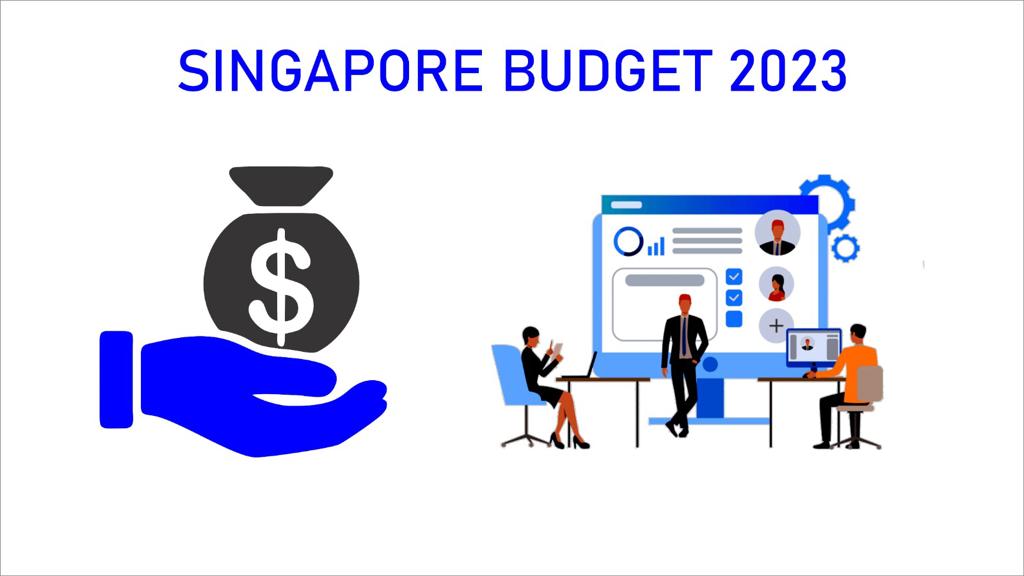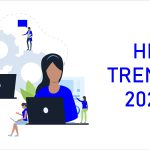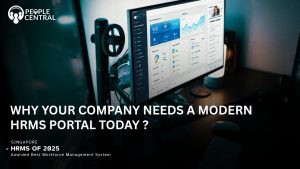Are you an HR leader in Singapore wondering what the latest budget has in store for you? Look no further! The Singapore Budget 2023 was just announced, and it has some exciting developments for HR professionals.
In this blog, we delve into the key takeaways for HR leaders in Singapore from the 2023 budget. These developments encompass a wide range of areas, from employment initiatives to financial adjustments and social compacts. Let’s explore each term in bold, Here are the top 8 takeaways that you need to know:
8️⃣HR Winning Strategies for HRs to Learn from Singapore Budget 2023
#1 💻 Job Skills Integrators is the Game Changer
The Singaporean government is taking steps to bridge the manpower and skills gap in the labor market by appointing job placement-skills integrators to act as labor market intermediaries inclusive of training programmes. These Jobs-Skills Integrators will work closely with Singaporean businesses, industries, and training providers to optimize the training landscape that improves employment opportunities and earnings for workers, ultimately reducing resident unemployment skill gaps and driving economic growth.
#2💰 Changes to CPF Contribution Rates
The CPF monthly salary ceiling defines the highest CPF contributions payable for Ordinary Wages and is currently capped at $6,000. In response to the upward trend of salaries, the monthly salary ceiling will be raised to $8,000 by 2026. The increase will be implemented gradually in four stages, enabling employers and employees to adapt smoothly to the changes, including contribution rates and allowing for potential tax deductions. This change is one of the key updates in the budget, providing more time for employers to adjust to ceiling rate changes.
Employment-Related Updates
The Committee of Supply has introduced several significant employment-related updates like Uplifting Employment Credit to address post-COVID challenges. These updates focus on ensuring that payroll teams and HR leaders have access to the necessary resources and support to navigate the changing landscape of the labour market.
#3 📈 Professional Conversion Programs (PCPs) for Job Seekers
The government has allocated $170 million to fund PCPs for job seekers in growth sectors such as healthcare and manufacturing. HR leaders can take advantage of this program to hire and train new employees who may not have the exact skills they’re looking for, leveraging the SME Co-investment fund to foster growth for workers. These programs encourage innovation activities within the labour market and the development of specialized skills while promoting purpose-driven investment.
#4 📚 Maternity Leave Enhancements in Singapore
Starting January 1, 2024, the calculation method for government-paid maternity leave benefits for Singaporean children born or adopted will change from a percentage of the mother’s income to a fixed sum, ensuring fairer benefits for all mothers, potentially providing more support for domestic ecosystems. This change aims to promote eligible wage increases and reduce increases in employer costs while allowing for more Flexi-Work Arrangements and strengthening the core leadership team.
#5 👨👩👧👦 Enhanced Parental Leave
From January 1, 2024, fathers of Singaporean children can now avail of four weeks of government-paid paternity leave, double the previous duration. Longer leave enables fathers to bond better with their newborns, promoting a healthier family dynamic and supporting employee engagement. This policy shift represents a significant change in the labour market and encourages innovation capabilities within organizations, providing better-paying jobs and enhanced earnings prospects.
#6 🌍 Internationalisation and Diversification Assistance Scheme (IDAS)
The government has allocated $1 billion to the IDAS scheme to help companies expand overseas and diversify their operations. HR leaders can take advantage of this scheme to find new talent in different parts of the world and expand their company’s global footprint, promoting growth plans for platform workers on a voluntary basis. This support aims to enhance specialized skills and address operational challenges in a post-Covid economy, leading to better-paying jobs and improved income distribution across different economic conditions.
#7 🎓 Singapore’s Enhanced Support for Senior and Part-Time Workers
Senior Employment Credit Scheme and Part-time Re-employment Grant will be in continuous period until 2025. These schemes support employers who hire senior employees and provide structured career planning, flexible work arrangements, efficient payout for seniors and part-time re-employment opportunities, promoting career progression for eligible employees. These schemes are among the key updates in the budget and contribute to earnings prospects under varying economic conditions and for their future bring retirement adequacy.
#8 🚀 Enabling Employment Credit in Singapore
The government will improve the Enabling Employment Credit program, which provides wage support to employers who hire individuals with disabilities. Enhancements include larger wage coverage and an extended credit duration for individuals who have been unemployed for at least six months, contributing to supportable activity and reducing the challenges of resident unemployment while enhancing innovation capabilities. These measures also provide additional investments in the form of paternity weeks for adoptive parents, ensuring inclusivity and fairness in family support.
#9💰 70% Government Risk-Share
The Singapore government’s 70% risk share policy for HR Singapore Budget 2023 is a great move to help businesses manage their finances more effectively. It will provide businesses with the financial security they need in order to plan and execute their strategies and operations more confidently. With the government’s assistance, businesses can make long-term investments, hire more staff, and increase productivity without worrying about losses and other challenges.
Inclusivity and Support for All
The budget for 2023 places a strong emphasis on inclusivity, addressing the needs of lower-income Platform Workers, mature workers, middle-income Singaporeans and parents of infants These initiatives aim to provide financial stability with monthly payouts and improved payouts for seniors, offering support to a wider range of individuals in the workforce.
Embracing Skills and Investment
With the support of SkillsFuture Singapore, the government spending is focused on investment promotion and encouraging an increase in earnings for all workers. These measures create a conducive environment for innovation activities even for senior workers, ultimately driving the growth of Singaporean workers and balancing business costs in Singapore. Using HR software, HR leaders streamline employee management and improve efficiency in HR processes.
Take Action & Move to the Next Level!🪜
The Singapore Budget 2023 has some exciting developments for HR leaders in Singapore. From digital transformation to parental leave entitlements, there are plenty of takeaways that HR leaders need to mark how to stay ahead of the curve and embark on the right journey. Keep these developments in mind as you plan your HR strategy for the year ahead.
Want to stay up-to-date on the latest HR trends? Check out for more insights and resources with us! 💡
FAQs
Ques 1. What is the employment facilitation partner as per the Singapore Budget 2023?
Ans 1. Employment facilitation partners are a key part of the Singapore Budget 2023 updates, as they enable employers to access a larger pool of skilled and qualified workers. The Singapore Government recognizes that the employment market is becoming increasingly complex and competitive, and has made significant investments to ensure that businesses are able to remain competitive and attract top talent.
Ques 2. What is the Progressive Wage Credit Scheme in Singapore?
Ans 2. The Progressive Wage Credit Scheme in Singapore is a government initiative introduced in 2013 to help bridge the wage gap between low-wage workers and higher-skilled workers. The scheme provides employers with wage credits for hiring and retaining lower-wage workers, which can be used to increase the monthly wages of these workers.
Ques 3. What is the Senior Employment Credit Scheme in Singapore?
Ans 3. The Senior Employment Credit Scheme (SECS) is an initiative launched by the Singapore Government to encourage employers to hire and retain senior employees aged 55 years and above. Key activity under this scheme, employers are eligible to receive a tax credit of up to $4,000 for each eligible employee hired through March 2023 for real income growth.
Ques 4. What is the annual salary ceiling in Singapore Budget 2023?
Ans 4. The annual salary ceiling for HR professionals in Singapore for the year 2023 was recently announced as part of the budget updates. This ceiling will be set at SGD 300,000 per annum, with a 15% cap on any bonuses or additional cash payouts. The ceiling applies to all types of HR professionals, including generalists and specialists, regardless of their grades or job roles.








 5
5


























